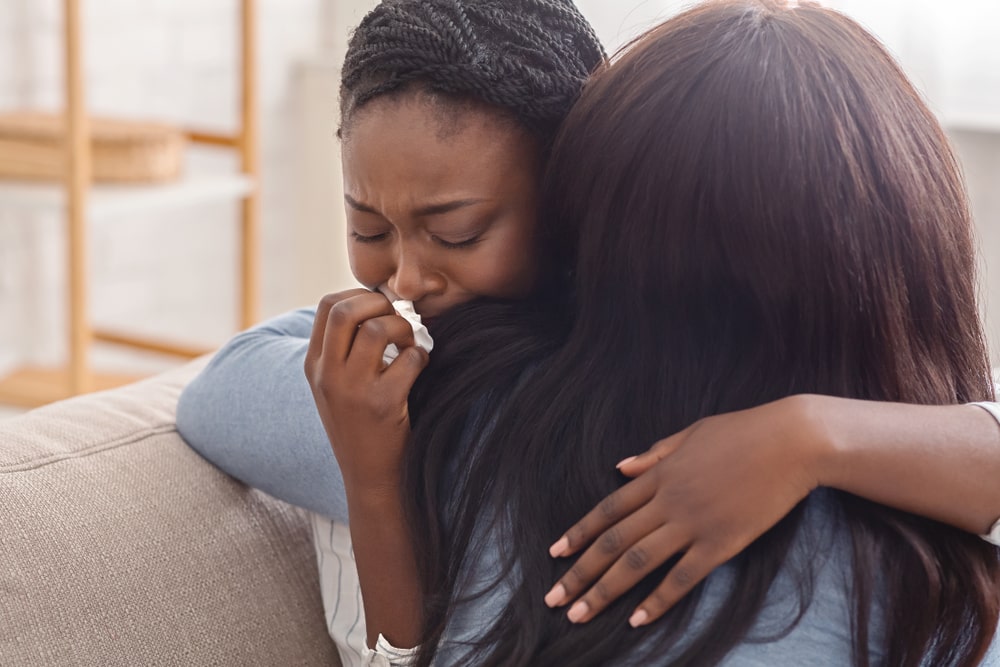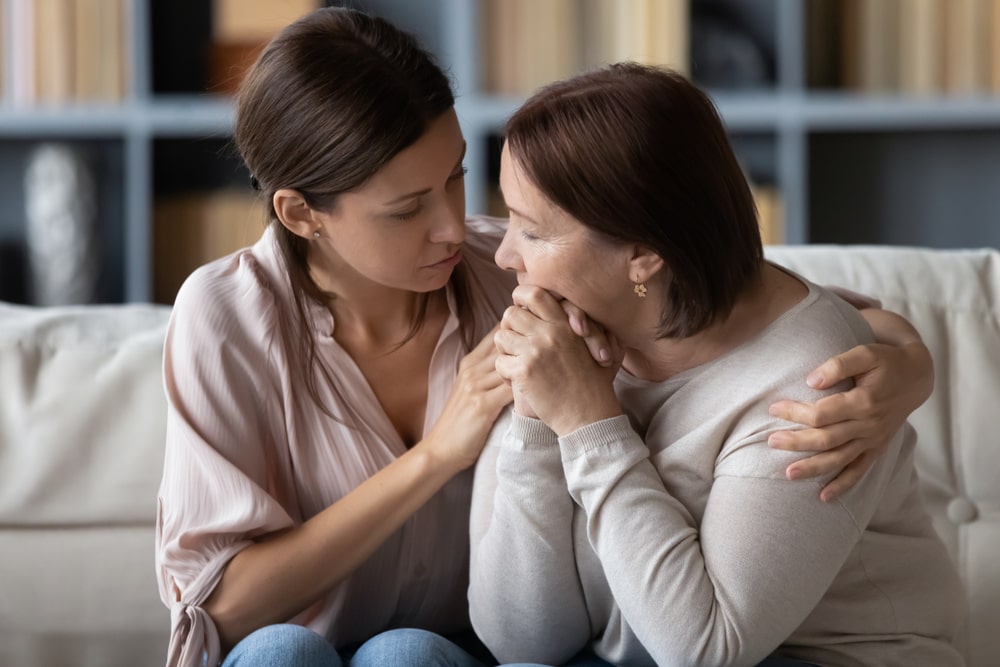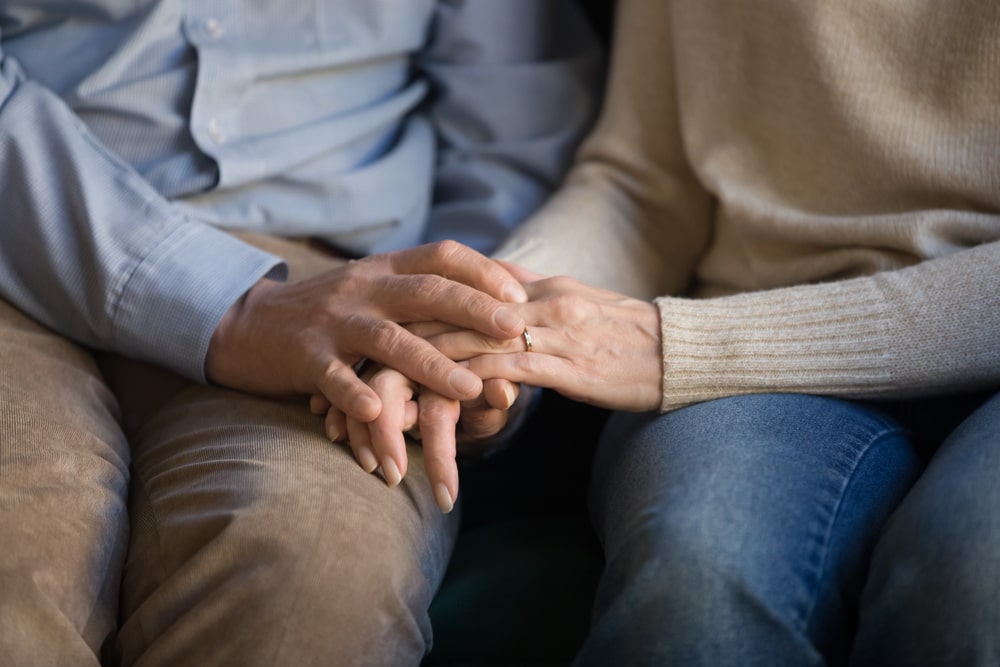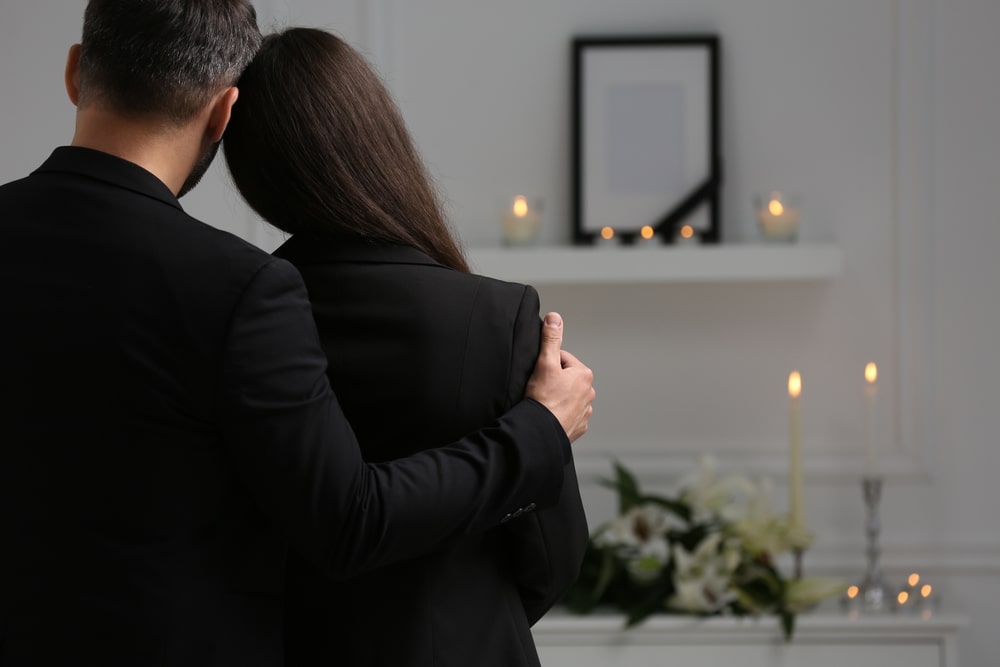While the depth of feeling varies from person to person, we can all agree that when someone we love dies, we feel many different emotions, like sadness, anger, relief, regret, among others. These feelings are absolutely normal – and nothing to be ashamed of – but how do we begin to process the pain we feel so that we can find peace and move forward with our lives? While it may surprise you, the funeral ritual is an important part of the grieving process, helping us begin the process of dealing with the pain we feel following the loss of someone we love.
The 6 Needs of Mourning
Dr. Alan Wolfelt, a nationally recognized grief expert, counselor, and educator, has found that the funeral is more than just a ritual – it is an important part of grieving well and discovering the ability to move forward. After talking with thousands of families, Dr. Wolfelt found that a meaningful funeral helps meet six essential needs of mourning. He believes these six needs are “the most central to healing in grief. In other words, bereaved people who have these needs met, through their own grief work and through the love and compassion of those around them, are most often able to reconcile their grief and go on to find continued meaning in life and living.”

The six needs are:
- Acknowledging the reality of the death
- Moving toward the pain of loss
- Remembering the person who died
- Developing a new self-identity
- Searching for meaning
- Receiving ongoing support from others
A personalized funeral that encompasses all six of these needs becomes meaningful and healing. It creates a special moment in time that can bring comfort and peace and helps each person start the grief journey on the right foot. Today, let’s explore how funerals help us begin to process the pain we feel.
Facing the Reality of Loss
Dr. Wolfelt says, “From my own experiences with loss as well as those of the thousands of people I have counseled over the years, I have learned that we cannot go around the pain of our grief. Instead, we must learn to embrace and express it. This is hard but absolutely necessary work.” In other words, we cannot take shortcuts. We must face the pain of our loss in order to move forward. The funeral or memorial service provides an opportunity to confront the reality of our loss. We can’t pretend or ignore what’s happened. With the presence of the body or cremation urn, we are encouraged to accept what has happened and begin learning how to incorporate the loss we’ve suffered into the story of our lives.
Finding Outward Expression for Feelings of Grief
Losing a loved one brings a variety of emotions to the surface, sometimes conflicting and confusing emotions. The funeral provides an opportunity to express those emotions outwardly, among friends and family who love you and are there to support you. The funeral is a time and place when you can safely express your feelings without fear of judgment or reprimand. Rather than keeping your emotions bottled up inside, the funeral ritual encourages you to release the pain you feel. For many people, this means crying, sharing memories, and even laughing at stories that are shared. So, take advantage of the funeral or memorial. It is a special time dedicated to help you outwardly express your inward feelings.
Putting You on the Path to a Healthy Grief Journey
You may have heard that a funeral brings closure; this isn’t technically true. The funeral does bring a close to the logistical parts of loss – service, burial, cremation, etc. – but it doesn’t end the grief journey. In fact, the funeral marks a clear beginning to the grief journey. Before the funeral or memorial service, you may feel numb or stunned and confused by the loss. In a very real sense, you are “bereaved,” or ripped apart by the grief. But to reconcile yourself to the loss you’ve suffered, you need help putting the pieces back together, and the funeral is the first stage of the reconciliation process.
In fact, a meaningful final tribute creates a launching pad for a healthy grief journey. Not only does a meaningful service help you process and confront the pain you feel, it gives you the opportunity to express yourself, remember your loved one, and find a community of support for the days and months ahead. A well-planned funeral does not end your pain; it unveils it. And as Dr. Wolfelt says, “We cannot go around our grief. Instead, we must learn to embrace and express it.” With the loss of a loved one, a part of you is missing. The funeral sets you on the path toward reconciliation by helping you confront the pain of the loss rather than repress and ignore it.
After the Funeral is Over
While the funeral begins the process of dealing with the pain we feel, it is only the beginning of the grief journey. Depending on the depth of loss you’ve gone through, it may be too much to deal with all of your emotions at one time. In fact, it’s often best to process everything a little at a time. Dr. Wolfelt puts it this way: “You will probably discover that you need to ‘dose’ yourself in embracing your pain. In other words, you cannot (nor should you try to) overload yourself with the hurt all at one time. Sometimes you may need to distract yourself from the pain of death, while at other times you will need to create a safe place to move toward it.”
Ultimately, the goal is to reconcile yourself to the loss you’ve endured. It’s not about forgetting or never feeling sad again because you’ll always remember. Instead, it’s about finding a way to become a whole person again, without the physical presence of your loved one. It’s about learning to enjoy life again and finding renewed purpose and meaning so that you can live a healthy, peaceful life. The funeral is just one step in the grief process, but a necessary and important one. In many ways, it’s the door to a journey you didn’t want to take, but must. The funeral or memorial service will help you begin the hard work of grief by meeting your six primary needs as a mourner.






